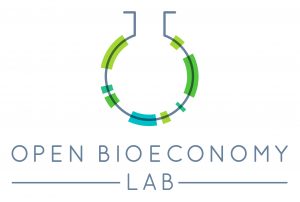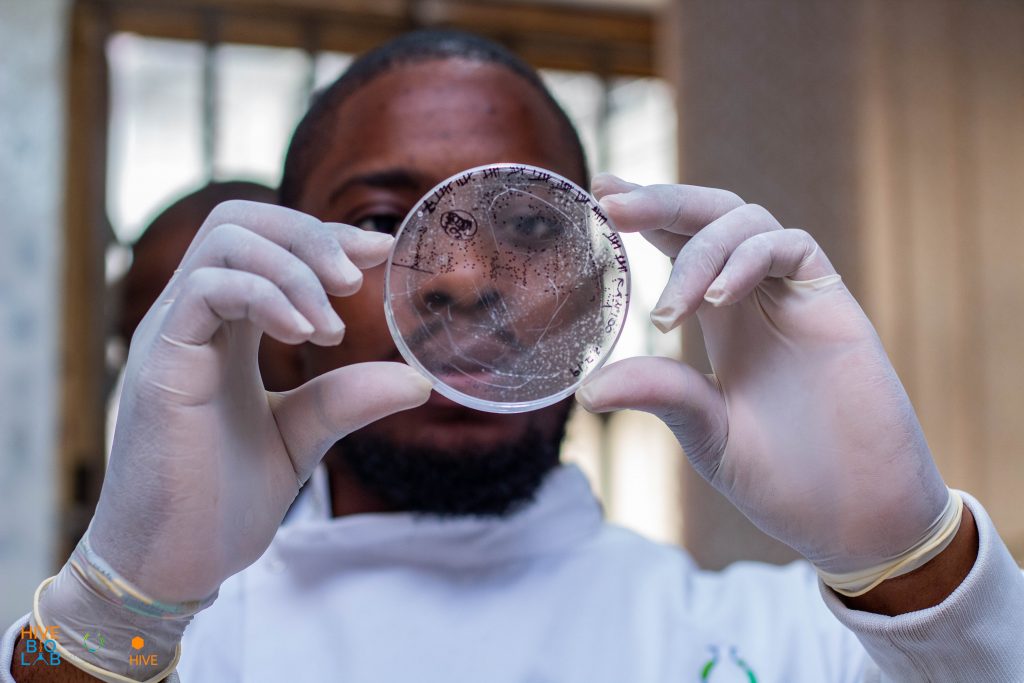Harry Akligoh has been a member of the OBL Ghana Node since 2018 and as he finished his MPhil and moves on to pastures new we asked him to reflect on his career journey to date and his plans for the future.
Knowing me, knowing you; How I got involved with Open Bioeconomy Lab
In April, 2018, I travelled to Kumasi to participate in the Africa Open Science and Hardware summit (Africa OSH). During the conference, I gave a presentation titled “Role of Citizen Science in Helping Overcome Africa’s Infectious Disease Burden”. In this presentation, I highlighted challenges of reagent and equipment inaccessibility being the cause of Africa not being able to overcome the staggering infectious disease burden and how open approaches like citizen science can help provide an innovative platform to curb the menace. Later during the conference, I sat in a workshop chaired by Dr. Jenny Molloy (Director, Open Bioeconomy Lab, University of Cambridge) on “Using Open Source Tools in Overcoming the Reagent and Equipment Access Challenge in Africa and the Global South.”I was impressed and drawn to her vision and goals of solving problems myself and other researchers faced on a daily basis while doing research or running a diagnostic test. Soon after the workshop, I engaged Jenny during a networking session to learn more about her work and get the opportunity to share with her the challenges myself and others faced everyday during our line of work. Through this conversation, Jenny spoke to me about her Shuttleworth Foundation funded project, the “Open Enzyme Project”; A project to solve the local reagent access challenges using social science research and local enzyme manufacturing and capacity building for researchers in Africa and the global south. Little did I know this encounter was the beginning of a working relationship and a platform to learn and grow.
Opportunities To Learn and Grow
In July, 2018, I accepted an offer to join Kumasi Hive; a Makerspace and Technology Innovation hub in Kumasi as a research assistant to Jenny Molloy on the Open Enzyme Project. This to me was a dream come true and happened at a time when I was finishing my compulsory national service and will soon become a job seeker. Why do I say so? In my sophomore years as a Medical Laboratory Science student at the University of Health and Allied Sciences, Ho, I was obsessed with the practice of science in the university and also how as a student I’d seen laboratory scientists use diagnostic technologies without truly understanding how they worked and not being interested in how they can also be creators of such technologies. I wanted to create these technologies too or be a part of teams creating them. The offer I believed will enable me to do that and also create a platform for me to excel in my career as a scientist. As part of my roles, I co-founded and managed the Ghana node of the Open Bioeconomy Lab at Kumasi Hive, conducted research to optimize protocols for producing DNA polymerase enzymes locally, co-developed training curriculum and facilitated training workshops on low-cost enzyme production and also worked on several amazing projects. All of these roles for three years honed my skills and groomed me to become better not just a scientist but also a good manager and an entrepreneur. My work with Kumasi Hive and the Open Bioeconomy Lab (OBL) also presented me with several other opportunities that took me on overseas trips to the UK, US, Germany, China, Japan, Tanzania, Cameroon and has since been the starting point to developing a niche career path for myself.
In 2019, Jenny’s nonprofit organisation Beneficial Bio awarded me a scholarship funded by the Shuttleworth Foundation in line with their commitment to build human resource capacity for local researchers to pursue a two years Master of Philosophy (MPhil.), Molecular Medicine degree at the Kwame Nkrumah University of Science and Technology (KNUST). This opportunity also provided me with yet another platform that prepared me and gave me the credibility to back my experiential knowledge accumulated working with the OBL team. I challenged myself to research the use of our locally produced enzymes to overcome the molecular diagnostics challenge in Ghana. I did this using Open Vent, one of the DNA polymerase enzymes successfully produced in the OBL Ghana node to develop a multiplex PCR assay for identifying four Sexually Transmitted Infections in a single tube reaction for my final year thesis. This study demonstrated how an essential tool like enzyme reagents when available locally can enable molecular diagnostics to improve patient care.
Beyond the Opportunities; Next Steps
Transitioning from a traditional university training that prepared me for work as a medical laboratory scientist in a hospital, to working as a scientist in an innovation space hasn’t been easy but it came with loads of my best developments career-wise and also personally. I developed and built experiences and expertise including innovation thinking, entrepreneurship, emerging systems approach like Open Science and Open Science Hardware and new biotechnologies like Synthetic Biology. All of these I believe will inform my next career decision as a scientist and entrepreneur. The saying “To whom much is given, much is expected” reminds me that I have a great responsibility towards the people and initiatives that invested in my growth and had the patience for me when I made mistakes along the way yet still encouraged and supported me this far. As I finish and defend my MPhil. research, the next plan for me is gain some additional research experience other than my previous experiences and subsequently start a PhD to build more capacity, network and the credibility to launch my own biotech company while developing and using biotechnologies to develop accessible molecular point of care tests and tools for the people who need them the most at affordable cost.


